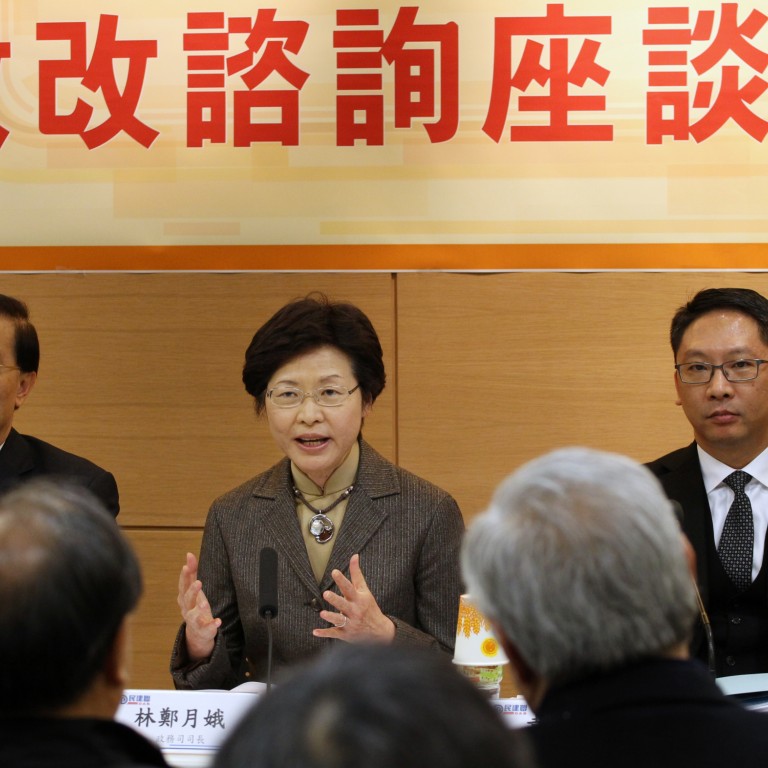
Time to look beyond 2047
Frank Ching says our focus on electoral reforms needs to be widened to take in the concept of 'one country, two systems'
Secretary for Justice Rimsky Yuen Kwok-keung has said that the people of Hong Kong should accept an "imperfect" system for the first chief executive election by universal suffrage because it can be improved after 2017.
The acknowledgement of flaws in the proposed system came days after he wrote an article opposing civic nomination and nomination by political parties, saying they were not consistent with the Basic Law, which says candidates should be put forward by a "broadly representative nominating committee".
Yuen argued that the clear language and specific provisions of Article 45 rule out civic nomination or nomination by political parties. While he doesn't question that those methods are democratic and widely used in democratic societies, he says they cannot be adopted in Hong Kong because of the Basic Law.
What, then, does he mean when he says the system can be improved after 2017? Won't "the clear language" of the Basic Law be just as clear in future chief executive elections? Why is he so sure that "further changes would be possible beyond 2017"?
If we accept Yuen's interpretation of the Basic Law, the only way the electoral system can be improved in the future is if the Basic Law is amended. Since that is the case, why wait until 2027 or even 2037 when, in the "clear language" of the Basic Law, Hong Kong's life as a special administrative region will last only until 2047?
Actually, now is the time to focus not just on a few words in the Basic Law but on the big picture - the policy of "one country, two systems" as it was conceived some 30 years ago by Deng Xiaoping .
Deng made clear that it would not be a short-term policy. As he put it, "The 'one country, two systems' concept is an important strategic decision; it is not a measure of expediency."
In recent years, there has been discussion of the relative importance of "one country" and "two systems", with some in Beijing saying that "one country" is more important because without it there cannot be "two systems".
However, in a lengthy commentary first published in 1990, the said: "The 'two systems' is an important component of the 'one country, two systems' concept. Without the 'two systems', the concept would be non-existent." Expanding on this concept, it said: "One country, two systems will persist throughout the primary stage of socialism."
This is significant since the Communist Party has officially declared that the primary stage of socialism will last for more than 100 years. That being the case, it seems illogical to impose a 50-year limit on Hong Kong's life as a special administrative region.
By 2017, 20 of those 50 years would have elapsed. Instead of simply discussing how the 2017 election should be held, we should be thinking about Hong Kong's future both before and after 2047. Certainly, if there are going to be future electoral reforms, they should apply not only to a handful of elections before the 50-year period ends.

